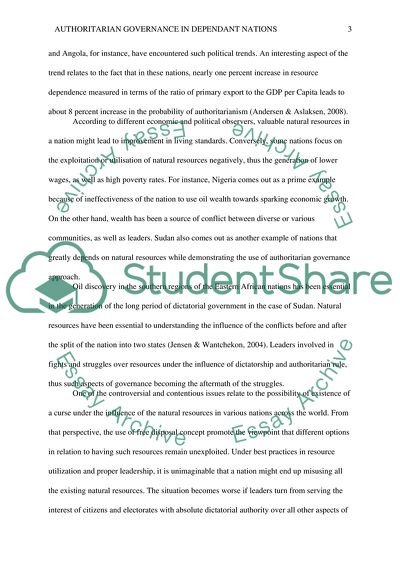Cite this document
(Authoritarian Governance in Natural Resource Dependent Countries Thesis Proposal Example | Topics and Well Written Essays - 2500 words, n.d.)
Authoritarian Governance in Natural Resource Dependent Countries Thesis Proposal Example | Topics and Well Written Essays - 2500 words. https://studentshare.org/politics/1876180-why-do-some-natural-resource-dependent-countries-have-authoritarian-governance
Authoritarian Governance in Natural Resource Dependent Countries Thesis Proposal Example | Topics and Well Written Essays - 2500 words. https://studentshare.org/politics/1876180-why-do-some-natural-resource-dependent-countries-have-authoritarian-governance
(Authoritarian Governance in Natural Resource Dependent Countries Thesis Proposal Example | Topics and Well Written Essays - 2500 Words)
Authoritarian Governance in Natural Resource Dependent Countries Thesis Proposal Example | Topics and Well Written Essays - 2500 Words. https://studentshare.org/politics/1876180-why-do-some-natural-resource-dependent-countries-have-authoritarian-governance.
Authoritarian Governance in Natural Resource Dependent Countries Thesis Proposal Example | Topics and Well Written Essays - 2500 Words. https://studentshare.org/politics/1876180-why-do-some-natural-resource-dependent-countries-have-authoritarian-governance.
“Authoritarian Governance in Natural Resource Dependent Countries Thesis Proposal Example | Topics and Well Written Essays - 2500 Words”. https://studentshare.org/politics/1876180-why-do-some-natural-resource-dependent-countries-have-authoritarian-governance.


